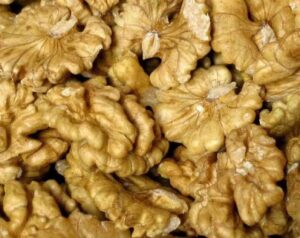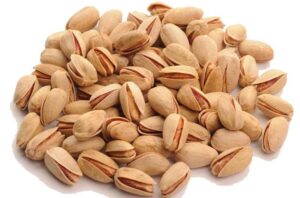Pregnancy is a time of significant change, and expectant mothers often have questions about their diet.
One common query is whether walnuts are safe and beneficial to consume during this crucial period. In this article, we will explore the nutritional benefits of walnuts, their safety during pregnancy, and how to incorporate them into a healthy diet. Can We Eat Walnuts During Pregnancy?

Nutritional Benefits of Walnuts
Walnuts are a powerhouse of nutrition, making them an excellent addition to a pregnant woman’s diet. Here are some key benefits:
1. Rich in Omega-3 Fatty Acids
Walnuts are one of the best plant-based sources of omega-3 fatty acids, particularly alpha-linolenic acid (ALA). Omega-3s are essential for fetal brain development and can contribute to better cognitive function in children. Including walnuts in your diet can help ensure that you and your baby receive these vital nutrients. Can We Eat Walnuts During Pregnancy?
2. High in Antioxidants
Walnuts are packed with antioxidants, which help combat oxidative stress in the body. During pregnancy, the body undergoes various changes that can increase oxidative stress, making antioxidants crucial for maintaining health. The antioxidants in walnuts can help protect both the mother and the developing fetus.
3. Source of Protein
Protein is essential during pregnancy for the growth and development of the baby. Walnuts provide a good source of plant-based protein, which can help meet the increased protein needs of pregnant women. Including walnuts in your diet can contribute to a balanced intake of protein.
4. Rich in Vitamins and Minerals
Walnuts contain several important vitamins and minerals, including vitamin E, magnesium, and folate. Vitamin E is vital for immune function and skin health, while magnesium supports muscle and nerve function. Folate is particularly important during pregnancy, as it helps prevent neural tube defects in the developing fetus.
Safety of Walnuts During Pregnancy
1. Allergies and Sensitivities
While walnuts are generally safe for most pregnant women, it is essential to consider any allergies or sensitivities. If you have a known nut allergy, it is crucial to avoid walnuts and consult with your healthcare provider for alternatives.
2. Moderation is Key
Like any food, moderation is essential when consuming walnuts during pregnancy. While they are nutritious, walnuts are also high in calories. Overconsumption can lead to excessive weight gain, which may pose risks during pregnancy. A small handful (about 1 ounce or 28 grams) per day is typically recommended.
3. Consult Your Healthcare Provider
Before making any significant changes to your diet during pregnancy, it is always best to consult with your healthcare provider. They can provide personalized advice based on your health history and dietary needs.
How to Incorporate Walnuts into Your Diet
Incorporating walnuts into your diet can be easy and delicious. Here are some ideas:
1. Snack on Them
A simple way to enjoy walnuts is to snack on them raw or roasted. They make a great on-the-go snack that provides energy and nutrition.
2. Add to Salads
Chop walnuts and sprinkle them on salads for added crunch and flavor. They pair well with leafy greens, fruits, and vinaigrettes.
3. Blend into Smoothies
Add a handful of walnuts to your morning smoothie for a nutritious boost. They blend well with fruits, yogurt, and other ingredients.
4. Use in Baking
Incorporate walnuts into baked goods like muffins, bread, or cookies. They add texture and flavor while enhancing the nutritional profile of your treats.



